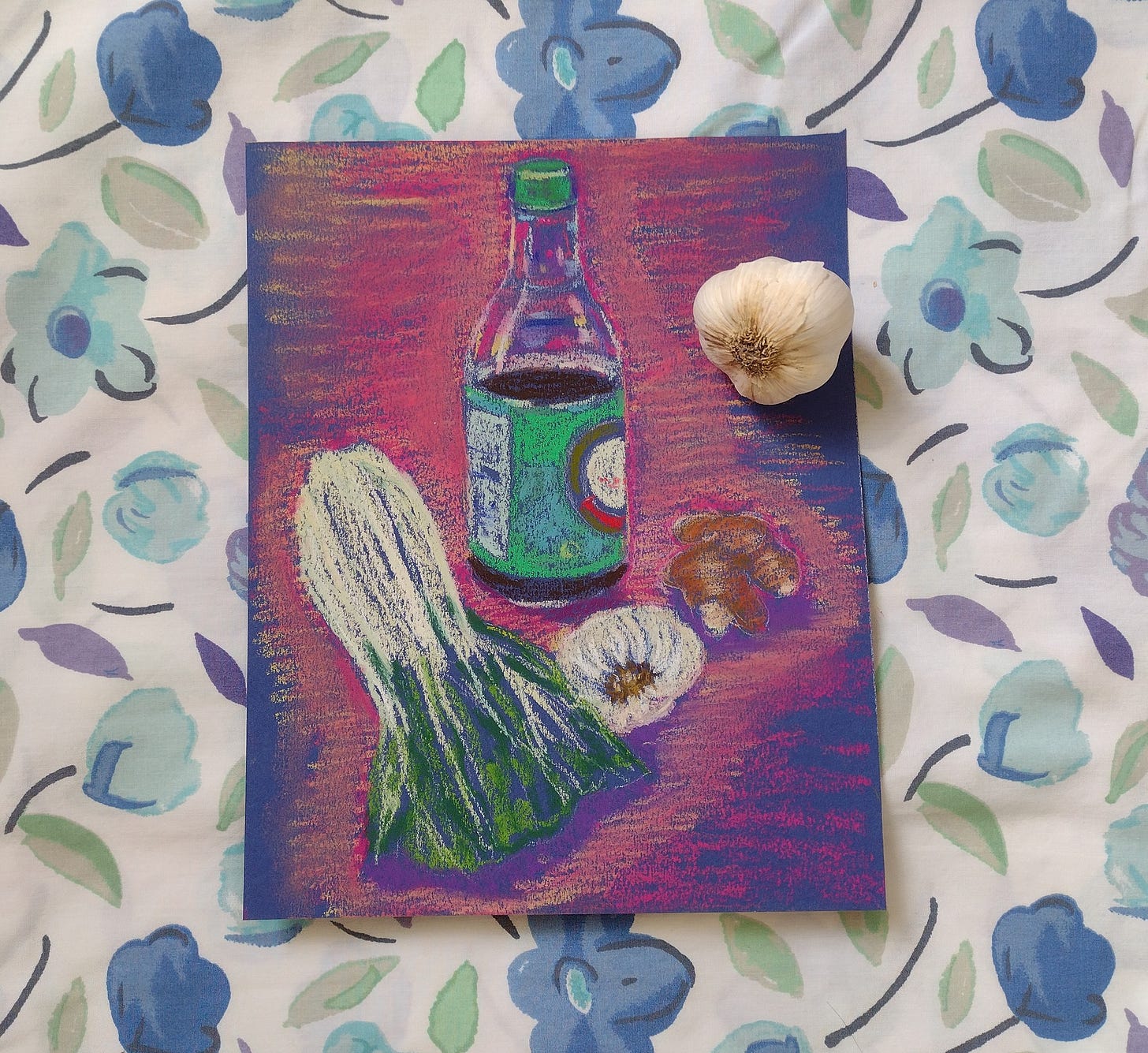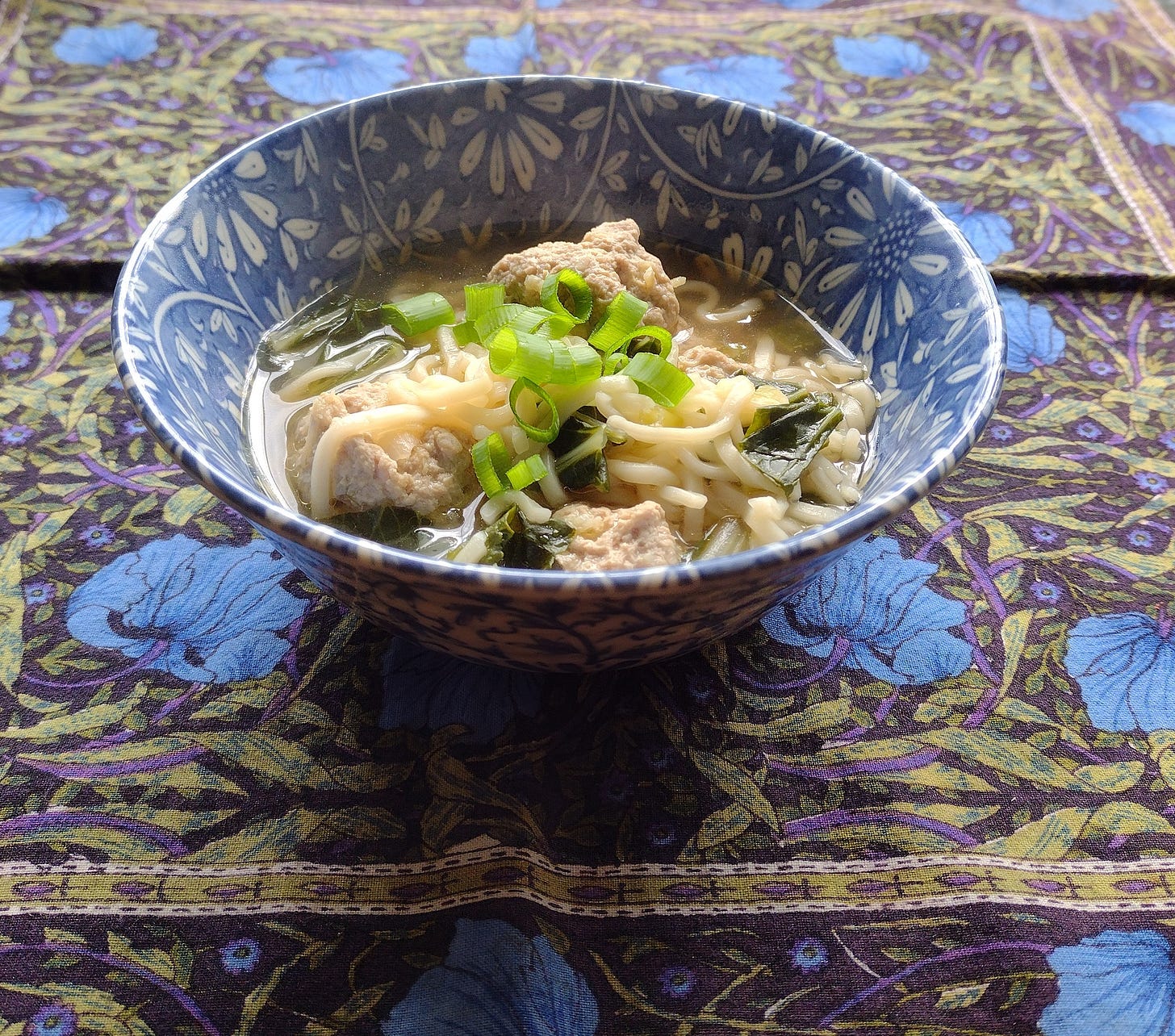Greetings,
When does a recipe become your own and when should you give credit to the source? In 2010 a brother and sister team of designers, Nate Padavick and Salli Swindell, started a blog “They Draw and Cook.” Artists were invited to submit their illustrations incorporating hand-lettered recipes and satisfying specific criteria, such as using a particular ingredient. I remember illustrating a fig jam recipe, a spinach salad with strawberries, and polenta. The illustration had to be in an elongated format (approximately 6.5 h. x 16.5 w.” ) without any text in the center of the art. This last requirement was to ensure that if your illustration was ever used in one of their books, the text would not fall into the gutter. My recollection is that Nate and Salli instructed would-be contributors that once you changed two ingredients the recipe became yours. I don’t know if that is sound advice, but it was always fun to submit your art and have it pop up on their blog. They eventually applied the same format to illustrated maps and were always enthusiastic supporters of the artists. They went on to have their recipe and map books published. Nate and Salli can be found today in a slightly different format at “They Draw”.
This Pork Meatball and Bok Choy soup is based on a recipe that I found online and did not bother to include the web address or author’s name when I printed it. I have switched out the Chinese cabbage for bok choy, but have not made any other major changes. According to an article that I read in the New York Times on cookbook plagiarism, recipes are one of the few creative endeavors that are not afforded copyright protection, and the question comes down to one of ethics. According to Bonnie Slotnik of Bonnie Slotnick’s Cookbooks located in Manhattan’s East Village borrowing recipes goes all the way back to “American Cookery” published in 1796 and considered America’s first cookbook. Many of the recipes in the book however are taken directly from British cookbooks. Personal essays, photos, and illustrations that accompany a recipe are protected under copyright law. The NY Times article mentions that the cooking school Cordon Bleu recommends six ingredient changes before the recipe becomes your own. Two changes seem like too few, six like too many, but my one change certainly does not make this soup my own.
Pork Meatball Bok Choy Soup
Ingredients
1 pound ground pork
2 scallions, finely minced
2 T. freshly grated ginger
2 T. dry sherry
2 T. reduced-sodium soy sauce
1 T. finely minced garlic
1 t. sesame oil
1/4 t. white pepper
______________________
8 cups chicken stock, preferably homemade
2 cups bok choy, chopped
1 T. reduced-sodium soy sauce
8 oz. Chinese noodles
chopped scallions for garnish
Directions
Start by making the meatballs. Place all the ingredients above the dotted line in a large bowl. Mix until well combined with your hands. Cover the bowl and refrigerate for at least 30 minutes. In a large pot, bring the stock to a simmer. Reduce heat to low. Form meatballs by hand and drop them into hot broth. They should be about the size of golf balls. Cook for about 20 minutes. Add the noodles, bok choy, and soy sauce. Cook for an additional 3 minutes or until the noodles are tender. Top each bowl with chopped scallions.
The recipe makes about 20 meatballs and 4 hearty servings.
An example of an illustration for “They Draw and Cook”.
Thank you for reading, liking, commenting, and sharing!
Vicki







Thanks for the discussion of recipe ownership--it is provocative. In general I look to recipes for inspiration but don’t follow them to the letter (except sometimes for certain baked goods!). When I write about them, I give credit, even if only for the inspiration. Yours, for example, sounds wonderful, but I’d probably use ground chicken or turkey as I don’t usually eat pork. Perhaps it would be less delicious. Your illustrations are delightful, as always!
I’ll always cite it if I share a sourced recipe, but I like to think that the recipes I share are open source, sharing for the joy of sharing. How can you own joy? 🤦♀️